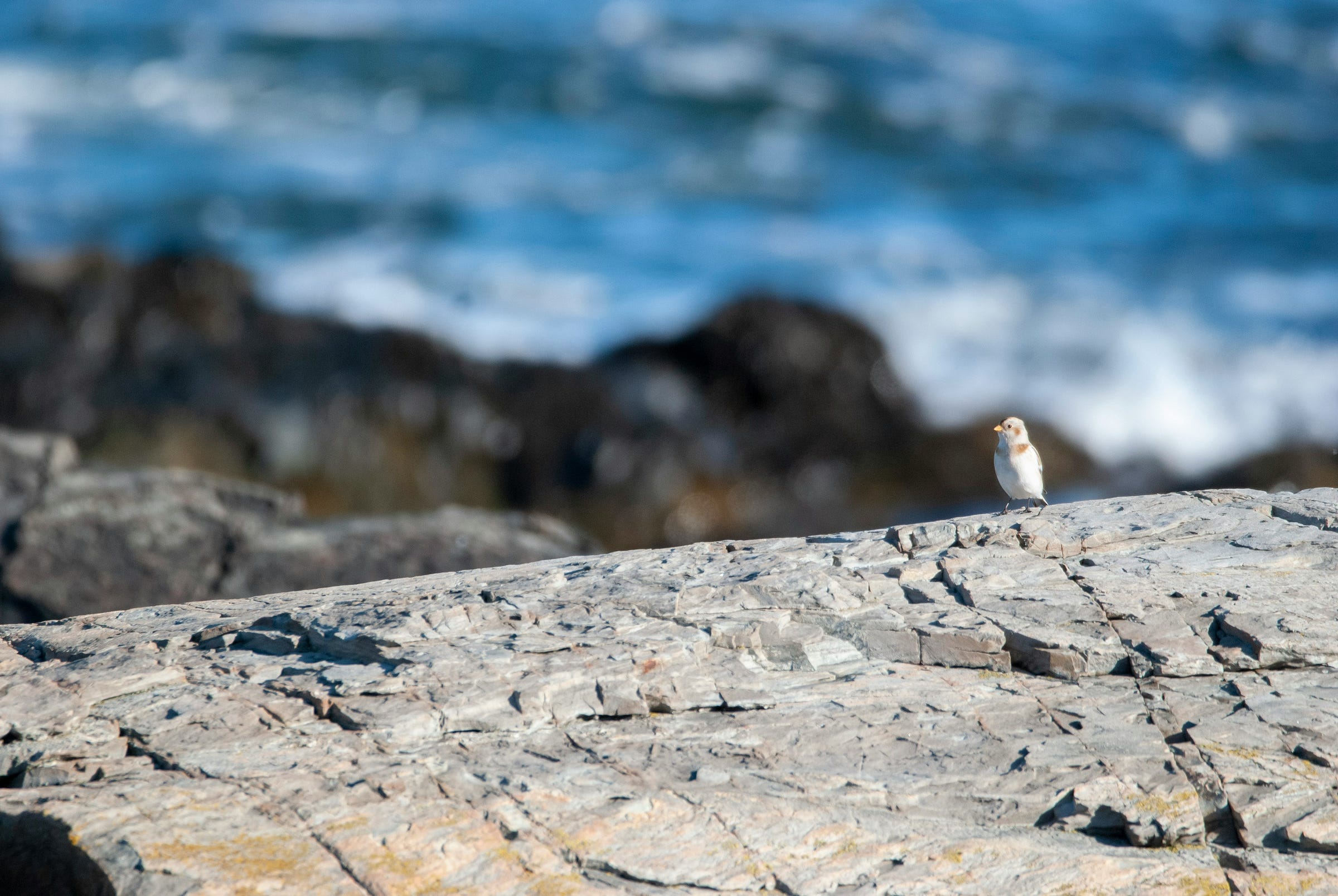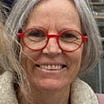Introduction
by Steve Thorp - co-editor, Unpsychology Magazine
This post is a guest Unpsychology Voices piece by Jena Griffiths.
I came across Jena’s writing when she submitted poetry for the latest Unpsychology Magazine, on the theme of Edges, which will be published later this summer. In the following weeks, we exchanged emails about writing and edges. In one of her emails, she wrote: “Thanks to your Edges prompt, I also wrote a story about my sister shortly before she died, living between two worlds with Lewy Body dementia. I'm glad to have written about this experience. The story wouldn't have materialized without your prompt. So thanks again.”
That got me thinking. About my own Mum, who died with Alzheimer’s disease in 2018. About other shadows of dementia and similar conditions that flicker around me – around all of us. There are stories that are not mine to tell, but Mum’s illness – and the effect it has had on my Dad and the wider family – is something I often reflect upon. This experience, I realise, pervades my creativity and my life. It reminds me of mortality and the fact that we can romanticise, spiritualise or hide from death as much as we want to, but this doesn’t change the reality that some deaths are (from our meaning-making human perspective) just downright awful.
And, of course, every experience of death and bereavement is individual and subjective. We are publishing Jena’s beautiful and harrowing piece about her sister as a way of beginning a conversation about such experiences, even in circumstances where there seems to be no meaning or redemption, whilst also recognising that meaning itself is a valid part of experience. So this is complex – as life is always.
In a future post, Jena and I will be posting a dialogue about some of the themes in her story. In the meantime, here is her piece, Last Cliff, written for her sister, Gwyn.
Last Cliff - Gwyn's Edges
by Jena Griffiths
1 - Last Cliff
Pushing my sister in her wheelchair through the double-doored exit of her locked ward. Patchwork knitted quilt over her knees. The sour smell of way-too-much disguised with disinfectant. Would I remember the secret pin code on return? If not, would they think I belonged here too?
We’re moving fast, along corridors and hallways. I want us out of here. Take her to the ocean. Smell the sea. Kick start aliveness for her. Feel the breeze on her skin.
We wheel across a pale parquet floor and then onto a darker mahogany surface. She responds with fear, shrinking into her seat, pulling up her legs – away from some perceived danger. All I see is a two dimensional change in floor colour. A dangerous canyon or cliff for her? The illness can bring with it a distorted depth perception.
A few more locked doors, another pin code test to get out of the property, then we are in dappled sunlight, under a parched green canopy of blue gum trees, paper thin bark peeling. It’s a hot day. I’m thankful for some shade however scanty.
It’s a level path along the street curb to the ocean. No obstacles except tiny stone-hard eucalyptus seeds, that stick to her wheels and occasionally grind them to a halt. But by the time we arrive, someone has stolen her ocean. Tide out for miles. A mud flat but with a welcome breeze. I take her sandals off and press her painfully red feet into the municipal grass. We laugh.
Where are you now Gwyn? I wonder. Where is the sister I once knew?
My big sister, who would organise plays when we were kids. Sit on top of me when she wanted her own way. The bathing cap with a blond pigtail on her pillow pretending it was her when she’d jumped out of the window and gone to the disco down the road. Our gran thinking she was safely in her bed asleep.
Where are you now Gwyn? She smiles at me blankly. We find a bench overlooking the mudflat and I unwrap the prawns I’ve brought for our picnic. She gobbles. I’m relieved that she still has some pleasures.
She used to swim kilometres in the sea. I thought she might do it in this ocean when they put her here seven or more years ago. But this is Deception Bay. A mosquito swamp. I don’t think she ever swam here. Still it’s a stretch of ocean we can walk to.
I take her back to her internment camp, pushing her chair under the canopy of bleached blue-green leaves. Patches of unrelenting sun where there’s no shade. A kookaburra calls. Gwyn can make that sound too and answers. We laugh.
Back at the fenced fortress, another pin code test of my memory to get her back inside.
A few days later, she is curled up in a foetal position. Fists tight. Arms and legs pulled into her hollow chest like a closed clam. Feet arched in agony. Her face a grimace. Her physio arrives and massages the tension from her hands, arms and feet. She relaxes. I’m astonished at what he has accomplished.
Next day I hear her before I arrive, talking and laughing. Having a conversation as I open the door to her apartment. She’s lying in bed. Alone.
“Hello Gwyn! What are you up to?”
“I’m with Barbara. We are climbing over these huge rocks. Look!”
She laughs in another landscape. I wish I could see what she sees. Who is she with? How does her current world merge with our shared reality? Am I also on the rock-face she and her imaginary friend are climbing?
I drop the side of her cot. She flinches, clenches, pulling away from the cliff she now always sees where the pink of her bedspread ends. I pull the rail back up and she relaxes slightly. Minutes ago she was rock climbing.
A caregiver feeds her with infinite care and attention. Gwyn is sitting up, but her hands are tight fists again. I take one hand and prise it open, massaging it the way her physio did. Maybe she has some agency here? Can she relax her hands if she wants to? It takes more effort to clench them. She relaxes this hand and is present, seems to understand what I’m saying.
I thank her for lying there all these years, forcing me to put words on the page, writing articles to attract people to my courses so that I can finance my trips from Europe to visit her. Without her lying there I wouldn’t be getting out into the world. Somehow we are collaborating.
2 - Letting go
I tell her about our great uncle, Rhys Emlyn Griffiths, who was with the Australians in Gallipoli. Machine gunned all the way in as they rowed ashore before dawn. Probably didn’t even make it to the beach. Our family had forgotten him.
She seems to listen carefully. She even nods once. How much does she hear or understand? Does it matter?
I’d flown to Canberra the day before and, in the pouring rain, watched Emlyn’s name projected onto the war memorial for 20 seconds at midnight. Sitting in the taxi I had hired. Young taxi driver the same age as Emlyn would have been. Just 22.
Poor bastard. All the bad men sent home due to poor behaviour in Egypt. All the good men slaughtered. Two boatloads of bodies stranded in no-man’s land. Days later, pushed out to sea. What happened to Emlyn? Did he make it ashore? Fire a shot? Kill someone? Did he drown, his lungs filled with blood, sea water or tears?
What has this to do with Gwyn now, lying here in agony? Perhaps nothing. Perhaps everything. I tell her she is healing our family. Perhaps helping future generations. Her hands relax a bit. I thank her for helping me write. She smiles and relaxes further.
A few days later, the caregivers ask what I’ve done. She’s a different person. She’s smiling again and much more relaxed. I wonder too.
Two days later, in the middle of my course, I get a call. Her heart is faltering. The one weekend that her daughter is away and can’t return. Back at her bedside, her caregiver asks if I want her on life-support. He breathes a sigh of relief when I say no. Let her go peacefully.
Do I have the right to make this choice on her behalf?
The night shift staff are the kindest crew. Doing the rounds constantly. They advise me not to leave. Waiting for emergency alarms to call them off schedule. Checking in on Gwyn, every 20 minutes or so. Offering me a bed as the night progresses. I decline.
We sit together all night. Watching her carers measure the oxygen in her fingertip on every turn of their rounds. The numbers drop slowly. Gwyn’s breathing is a shallow rattle, due to fluid on her lungs they say. It helps to prop her up with cushions. I try to hug her through the cold steel bars of her cot.
Can you see mom or dad or granny or anyone else? I ask. She shakes her head. Why haven’t I thought to prepare for this? I never did read the Tibetan Book of the Dead.
“Go to the light, Gwyn” I tell her. But actually I have no direct experience nor idea what I’m talking about. What does that mean really?
Remembering the factory ships from my sailing days. Mid ocean. Pools of light on the horizon. Huge beams pointed down into the inky depths. Magnificent sea creatures going to the light to become dog or cat food perhaps – or fish fingers.
And yet, I believe in a soul. Perhaps soul is all that is? Separation is just a game, an idiosyncratic illusion?
Midnight, we call her daughter to say hello and goodbye, then family and friends further afield. Not sure if she can hear or understand what is said. Nevertheless, she appreciates not being alone.
At dawn, a shaft of light pierces the blinds along with birdsong.
I lie down on the floor to stretch my back then hear a sigh.
Her grimace has gone. She’s beautiful. At peace.
One small sparrow, huge hearted songbird, has flown up the jagged cliff face that was for so long a descent.








Steve, its very good that you bring the topic of death to an audience. Thank you it is necessary in the current death denying culture we inhabit
I have problem with your intro however as it appears to judge. “some deaths are…. just downright awful”. From whose perspective is that? and how is it arrived? - complex questions. If you wish to start talking of meaning making then please do, as this is the core. Readers are left in a void. Then we come to this.
"And, of course, every experience of death and bereavement is individual and subjective."
I feel you radically reduce forces of life which necessarily require death, and offer polarisation, even the despair currently and already ubiquitous. Perhaps this is the intention.
Jena’s writing is beautiful, as is her ending. In all slow discussions of death there are references to beginnings. And as here, they are felt.
Thanks and kind regards, Peter
Thank you Jena for the window to your relationship with your sister, my experience with my father and mother death when I was just coming out of teen age was as different as you can imagine from your experience, and yet my body resonates vividly to your words, the detailed landscape of emotions and the colour of wondering as you move through floor changes, door codes, too sunny outsides, and that sea of mud… yes, even that mud feels shared. Thank you 🙏🏽